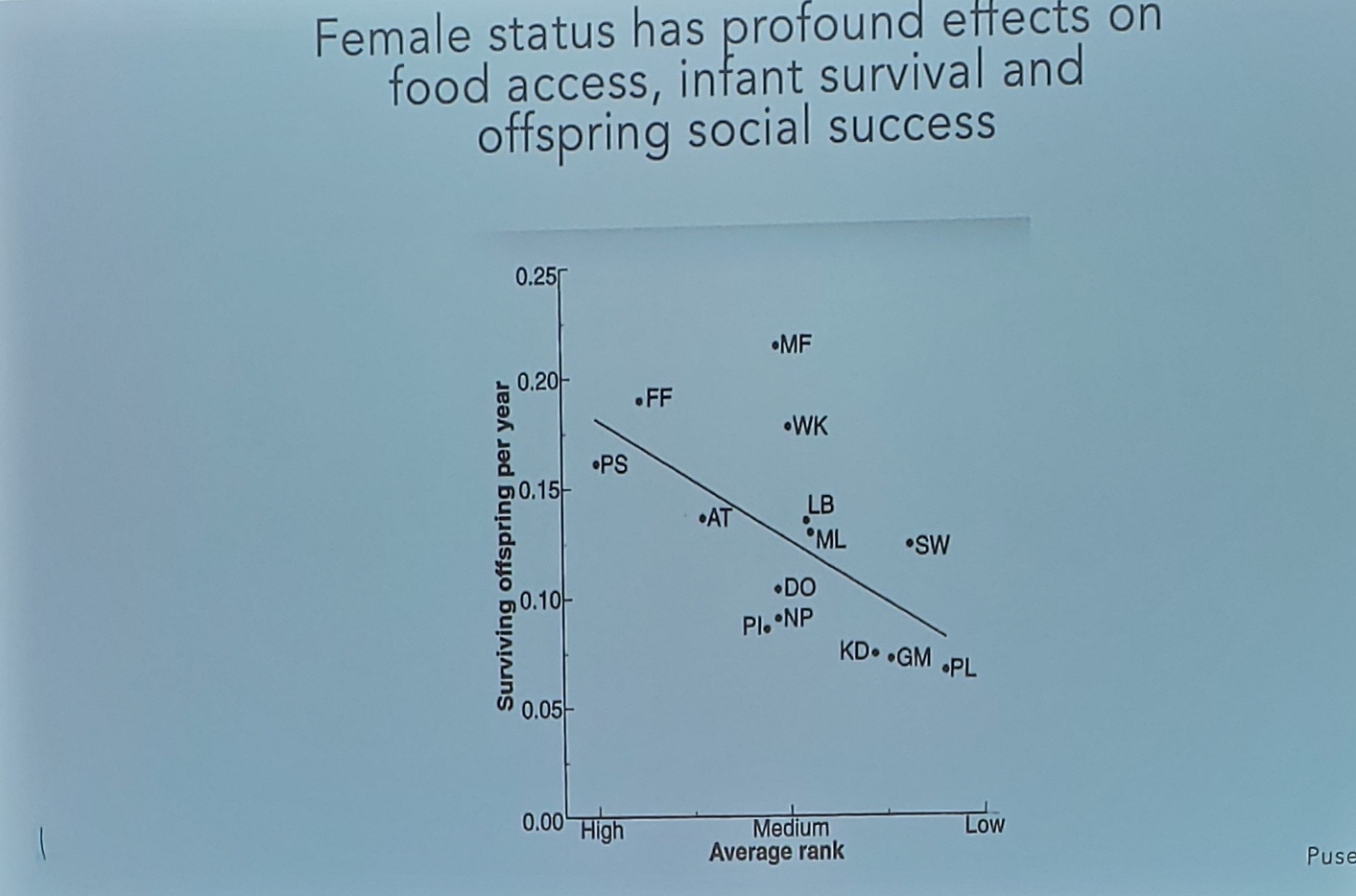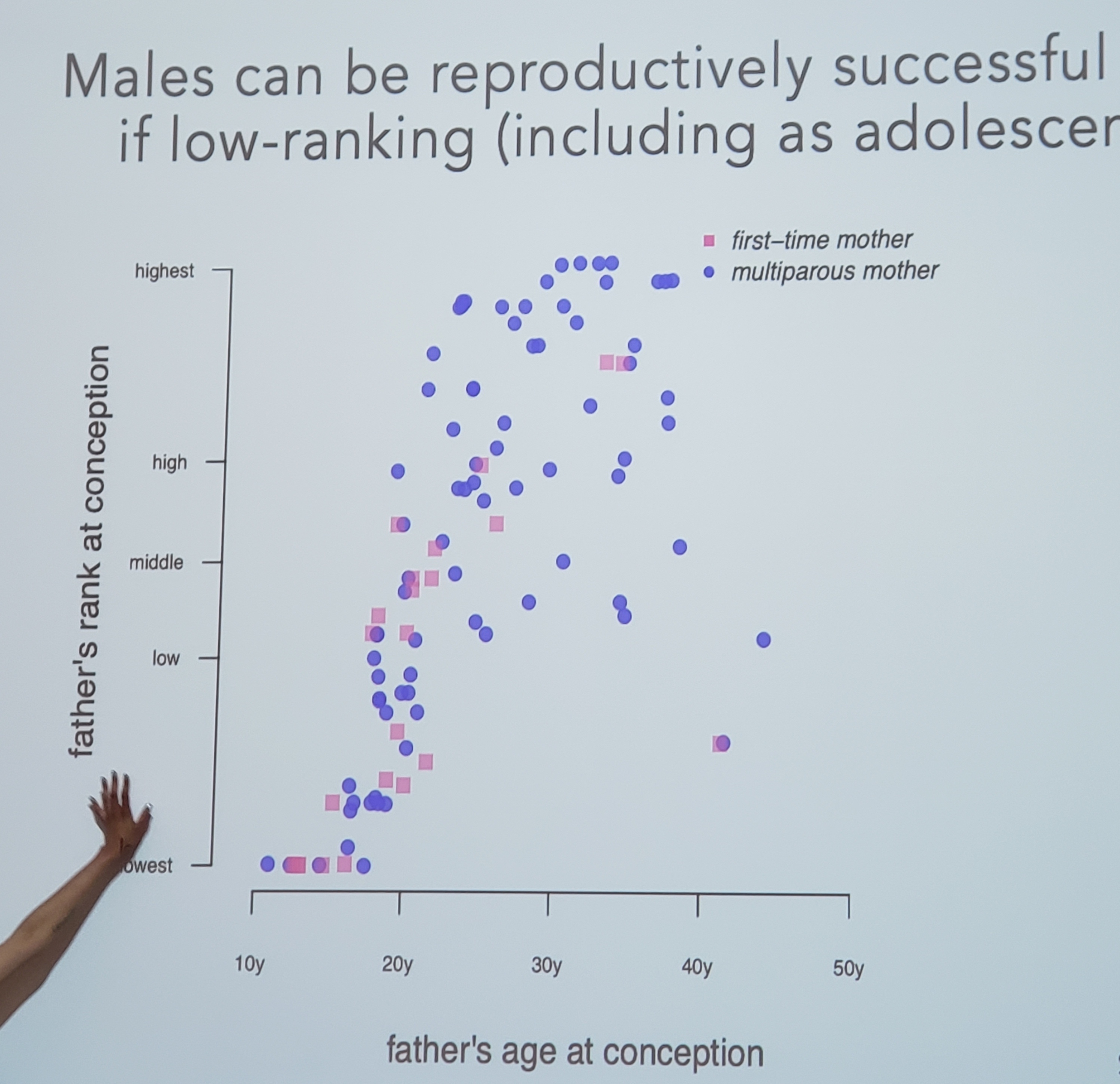Colloquium (04-18)
Colloqium today was on Adolescene in Chimpanzees and Bonoboos. The insanely fascinating talk was by biological anthropologist, (Rachna Reddy)[https://scholar.harvard.edu/rachnareddy/home]
here’s what I learned:
Chimpanzees live in communities! Each community is closed off and has their designated territories. Male chimps do border patrol of the communities territories. Chimps are extremely hostile towards outsiders.
Chimps can live into their 70s. Chimps go through adolescence just like humans do.
Female adolescent chimps will leave for other communities, cutting off ALL TIES with their exisiting family. While chimps are usually hostile towards outsiders, they are not hostile towards foreign female adolescent chimps. Female adolescent chimps will ‘date around’ and explore other communities before settling into their chosen community. Why female adolescent chimps are incentivized to leave and how they choose their new communities are both open questions.
Chimps have status within the community. Status of a chimp can be determined by their grunt when they greet each other. Grunts can vary based on intensity and length.
- The statuses of female chimps are determined in their adolescence and remain relatively stable. Research has shown that female status has profound effects on food access, infant survival and offspring social success. Offsprings of low ranking female chimp may be killed by male chimps in the same community (infanticide)[https://www.sciencedaily.com/releases/2019/06/190613121023.htm]

- The statuses of male chimps are more fluid. Research has shown that male chimps can be reproductively successful even if they are low-ranking. Chimps tend not to engage in status competition when they are young.

Mentorship exists in chimps! Older ‘mentors’ are important for social integration for females of both species and male chimpanzees
Biology Anthropology is a new field for me so everything is so new and fascinating! I think it’s interesting that female adolescent chimps seems to be wired to leave their family! Rachna mentioned that female adolescent chimps would leave their communities even if there’s no other communities to go to - they found a female chimp just sitting alone in a farmland doing nothing. It is as if “they just had to leave”. I wonder how much of this phenomenon is genetically programmed into chimps. And if it is indeed genetics, I wonder how much this could explain the behaviors we observe in human adolescents.